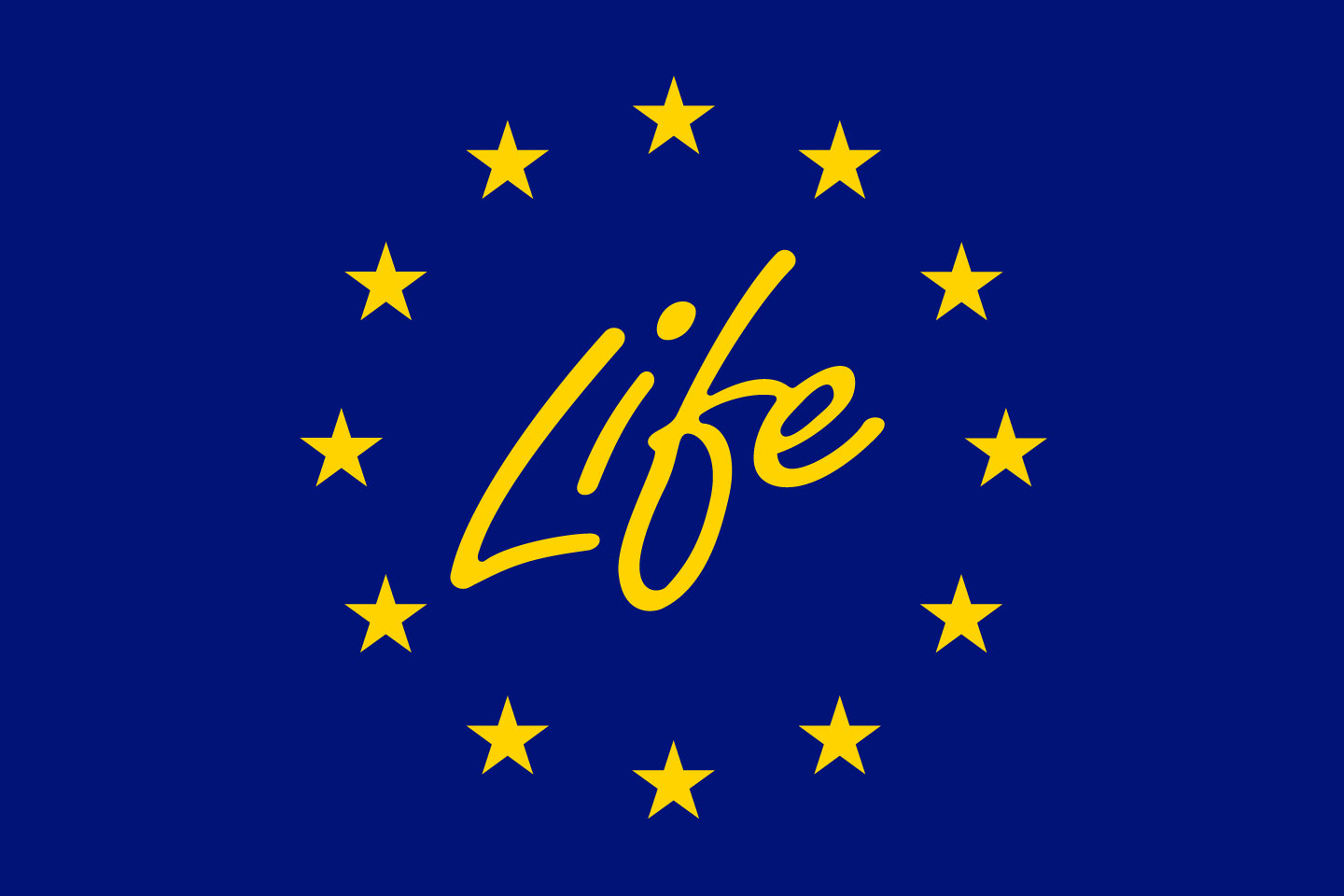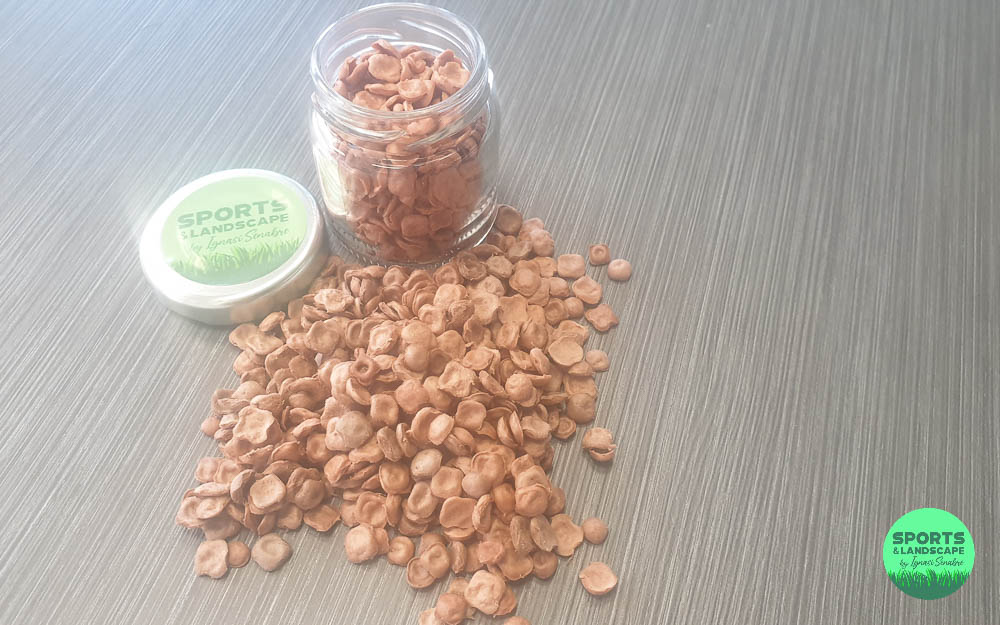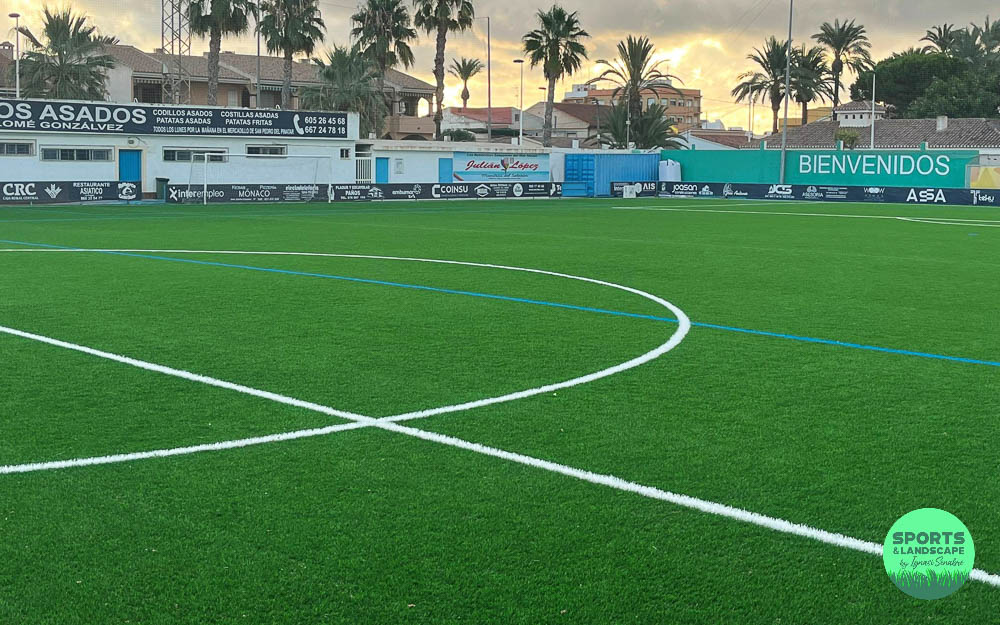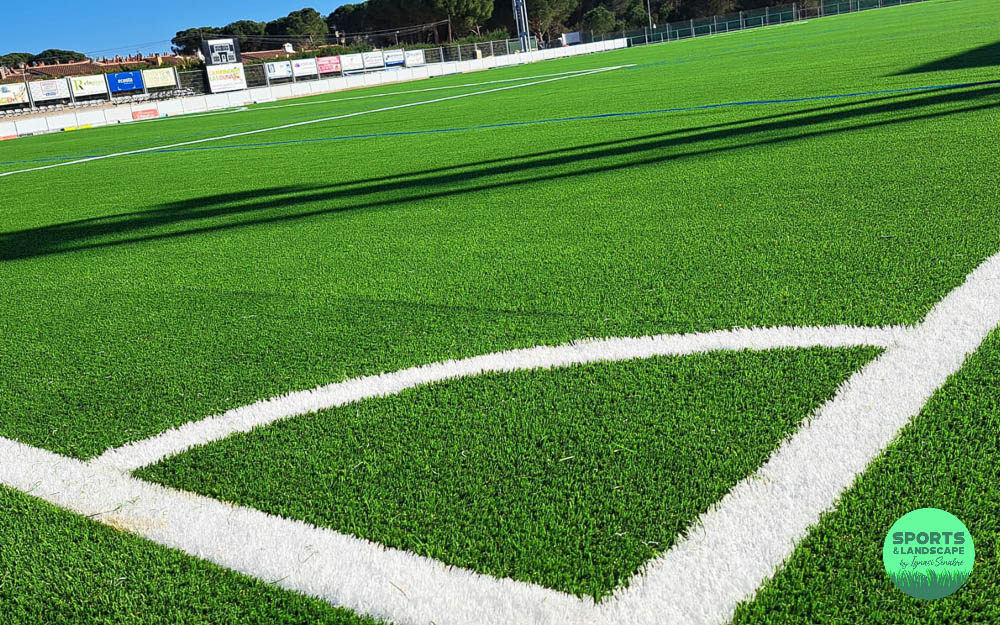The European Union forces to look for ecological alternatives to replace the rubber filling of sports fields
Sports & Landscape, a consultancy specialized in the market for artificial turf sports fields, has made a clarification addressed to city councils, sports clubs and the media in reference to the new European regulations on microplastics, which prohibits the use of rubber in the filling for the fields that are installed from 2030 onwards, but does not ban artificial turf or force the current fields to be dismantled.

On September 25, Commission Regulation EU 2023/2055 was published in the Official Journal of the European Union, which contains a series of prohibitions related to the manufacture and marketing of products considered microplastics. This especially affects sports fields made of artificial turf with a rubber substrate, as well as playgrounds also with a rubber surface.
Certain information published these days by various media outlets incorrectly stated that the EU was banning, within eight years, all artificial grass sports fields. The inaccuracies in this news have already been corrected in the last few hours.
“The new European regulations are a reason for satisfaction for Sports & Landscape,” says its founder and CEO, Ignasi Senabre, who adds: “We are pioneers in the sustainable and ecological transition of our products and we have been looking for biodegradable alternatives to rubber filling for a long time. The result of this concern is our participation in the European project LIFE T4C, which proposes Ecolastene as a sustainable alternative, and which in fact we have already installed in a soccer field in San Pedro del Pinatar, in Murcia.”
Another solution that we propose at Sports & Landscape is the exclusive filling with sand on an elastic base of recycled material, with 40 mm turf instead of 60. We have already installed this system on the fields of L’Escala, Vidreres, Capellades and Gandesa, among others. These fields have successfully passed the tests according to European standards, which demonstrates the reliability and performance of this solution, which is also the most sustainable.
From the LIFE T4C project, funded by the European Union to offer a sustainable alternative to these surfaces and made up of various companies and university researchers, the following clarifications are made.
Microplastics banned from 2030 by the new EU regulation are synthetic polymer particles smaller than four millimeters that are organic, insoluble and resistant to degradation. These types of particles are present in the rubber substrate added to artificial grass sports fields, which ends up being released into the environment in an uncontrolled manner.
The market was already working on alternatives to the rubber substrate for the filling, given the certainty that the European Union would approve a restrictive regulation of microplastics. In this sense, last September the LIFE T4C project was launched, which proposes an alternative to current sports fields filled with rubber particles.
The basis of this alternative is Ecolastene, a product developed by the company Green World Compounding (GWC), based in Alhama (Murcia), which presents multiple advantages:
– Recycled and recyclable, with a low carbon footprint.
– Safe and free of toxic substances, which does not decompose due to use or exposure to the open air.
– It has a passport that guarantees its traceability to be recycled without losses.
– Innovative design, which sticks the material to the playing field.
– Light and ultra-elastic, it offers high performance with a low amount.
– Easy to install and compatible with any type of turf.
– Certified by international sports organizations such as FIFA.
This new solution created by GWC and applied by Sports & Landscape represents a new life for artificial turf sports fields, “a surface that is essential today for sports practice, since its replacement by natural grass fields is unfeasible, for the high maintenance they require, due to their high water consumption and the limitation of weekly hours in terms of its use,” says Salvador Navarro, from GWC.
In addition, companies involved in the LIFE T4C project are developing new fills that ensure that land is kept at lower temperatures, which would further reduce the need for water.
The media have echoed the rectified news by interviewing representatives of Sports & Landscape, in the program “Tu diràs” on Rac 1, in Mundo Deportivo and in Marca, among others.


